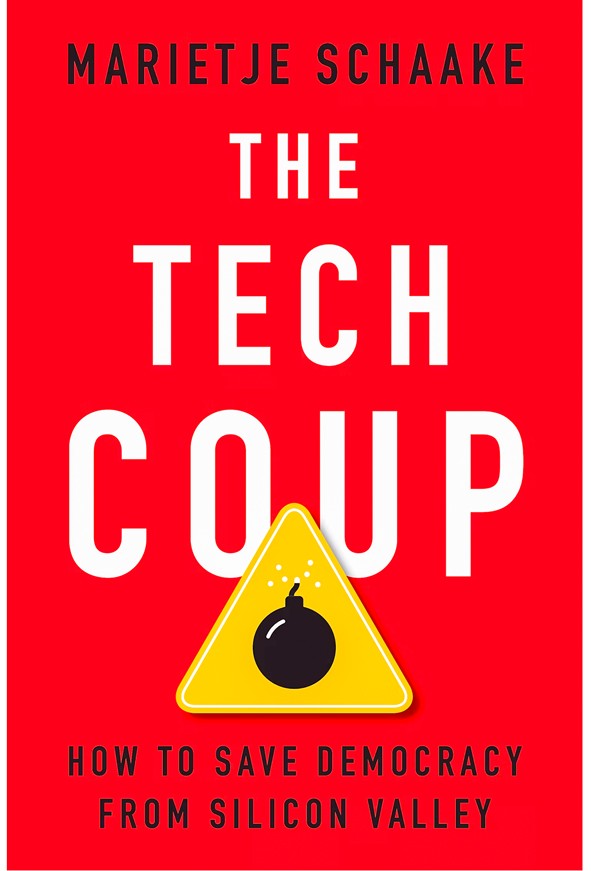
The Tech Coup
Marietje Schaake Princeton University Press (2024)
Marietje Schaake has had a unique career, working as a member of the European Parliament, an international policy director at the Stanford Cyber Policy Center in California and a columnist for the Financial Times. In The Tech Coup, she provides a sweeping perspective on how technology — from mobile phones to social media and artificial intelligence (AI) — has shaped geopolitics and democracy.
Her compelling narrative is both evidence-based and instructional. Schaake deftly tells sobering stories of tech interference in elections, reveals how dictators use surveillance technologies to spy on their citizens and lets readers in on the boardroom shenanigans of Silicon Valley executives.
She ends with a vision for a future in which technology is used for good, and outlines how elected officials can protect citizens from tech over-reach — in terms of coercion, say, and surveillance. She advocates for independent evaluation, transparency and accountability of tech companies and the governments that use their tools, along with robust legislation to enable a digital future in which democracy flourishes.
2024 has been dubbed ‘the year of the AI election’ — but AI is not going away. Schaake’s book is a valuable guide to preserving our democratic institutions. — Rumman Chowdhury
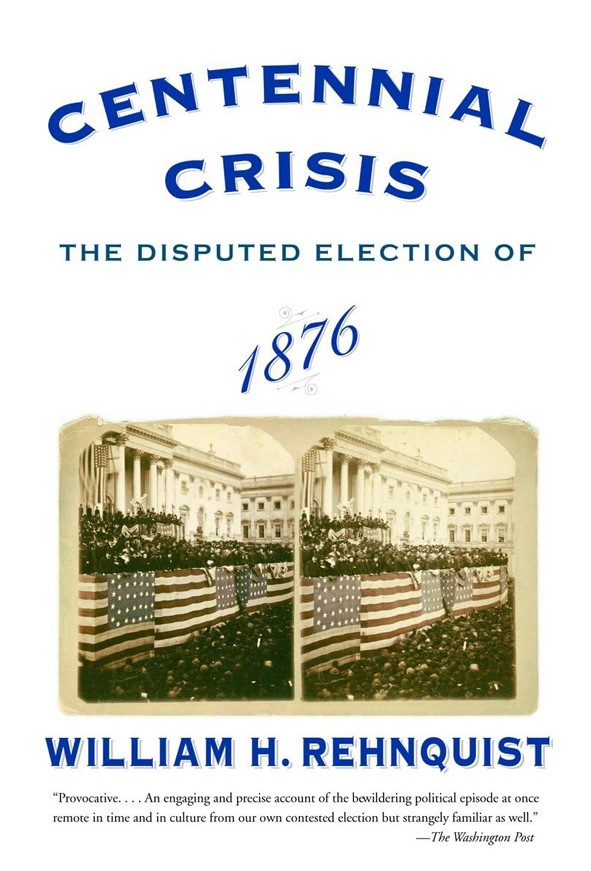
Centennial Crisis
William H. Rehnquist Knopf (2004)
Imagine a US election in which both sides claim victory. An election in which cries of fraud echo across the land. An election in which the winner did not win the popular vote. Welcome to 1876, when Democrat Samuel Tilden ran against Republican Rutherford B. Hayes.
For those fascinated by problematic elections, 1876 had it all, as former chief justice of the United States William Rehnquist shows in Centennial Crisis. There was uncertainty around who had won 4 of the 38 states, and an impossible voter turnout of 101% in South Carolina. Eleven southern states, barred from voting during the civil war of the 1860s, were allowed to vote freely — and had a strong distaste for the Republicans’ northern-approved constitutions and freedoms.
The Republican-led Congress made the partisan decision to elect Hayes — a choice that slowed the progress of racial equality in the United States. At the start of 1876, African Americans were full and equal citizens under the constitution. But once elected, Hayes had little influence over southern states — which passed regressive laws relegating African Americans to the back of the bus once more.
Centennial Crisis highlights Rehnquist’s skills as a storyteller. Hopefully, an election like 1876 will never happen again — but fear that it might makes this book an essential read. — Ole J. Forsberg
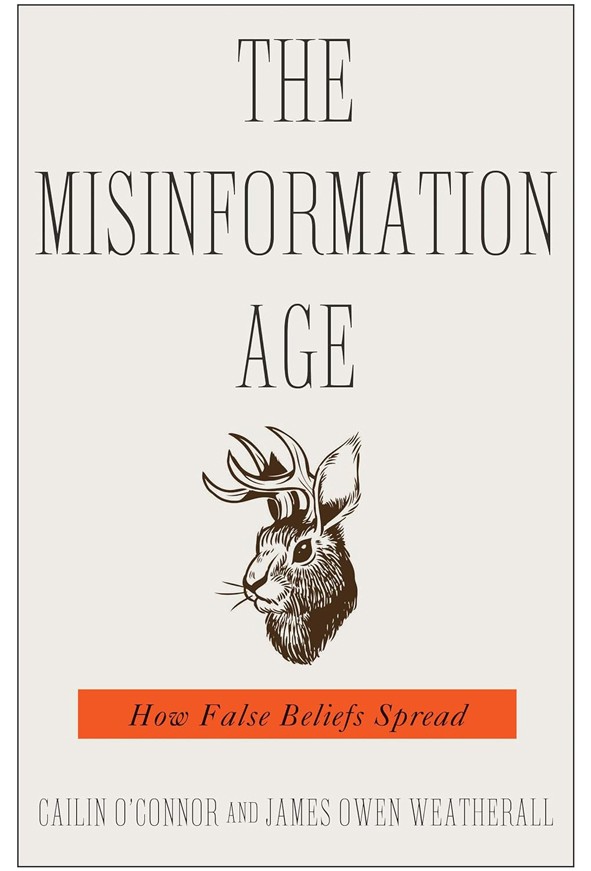
The Misinformation Age
Cailin O’Connor & James Owen Weatherall Yale University Press (2018)
The health of a democracy depends on its citizens’ shared trust — whether they agree that policy decisions are grounded in the best evidence, for instance. Yet, what is ‘truth’ is not always self-evident. In The Misinformation Age, philosophers of science Cailin O’Connor and James Owen Weatherall explore how people make judgments of truth. Given the speed at which misinformation can spread online, their insights are highly relevant.
Polarization and false beliefs can arise for surprisingly simple reasons, they show, such as a desire to conform or a mistrust of those who think differently. Exposure to different groups might change the opinions of conformers, but not of those who are mistrusting. The authors incorporate the influence of propagandists, policymakers and journalists into their models, to show how selectively sharing evidence can distort public opinion.
The book is full of case studies, from myths such as the medieval Vegetable Lamb — a plant thought by some to grow sheep instead of fruit — to the manufactured controversy around climate change. The Misinformation Age is a must-read for anyone interested in truth. But I did not verify the authors’ references, or attempt to replicate their models. So — do you have enough evidence to trust my review? — Li Qian Tay
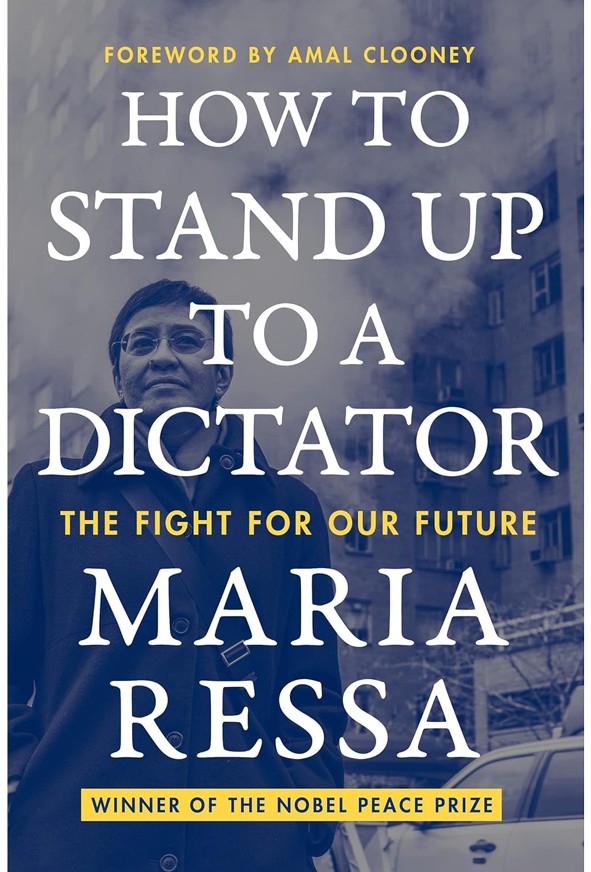
How to Stand Up to a Dictator
Maria Ressa Harper (2022)
Maria Ressa — journalist, democratic activist and winner of the 2021 Nobel Peace Prize — has fought a lifelong battle for freedom and justice in the face of dictatorships in her home country, the Philippines. In her memoir How to Stand Up to a Dictator, she uses these experiences as a powerful lens through which she examines the global spread of autocracy, the erasure of civil liberties and the ways in which technology is changing political and digital rights.
In 2012, Ressa co-founded a news site called Rappler, which used technologies such as open-source and crowd-sourcing software to create “uncompromising journalism”. Yet today, the same technologies are increasingly part of a dictator’s toolbox, used to identify, track and manipulate citizens’ data.
There’s only one way to stem the tide of autocracy, argues Ressa. Stand up — physically, mentally and strategically. The collusion between political and business elites should be exposed, citizens should be more committed to upholding their digital rights and there must be better communication and coordination among activists.
Her book is a wake-up call for all of us to be better custodians of our future — if we fail, we risk losing hard-won rights and liberties that took centuries to secure. — Roukaya Kasenally
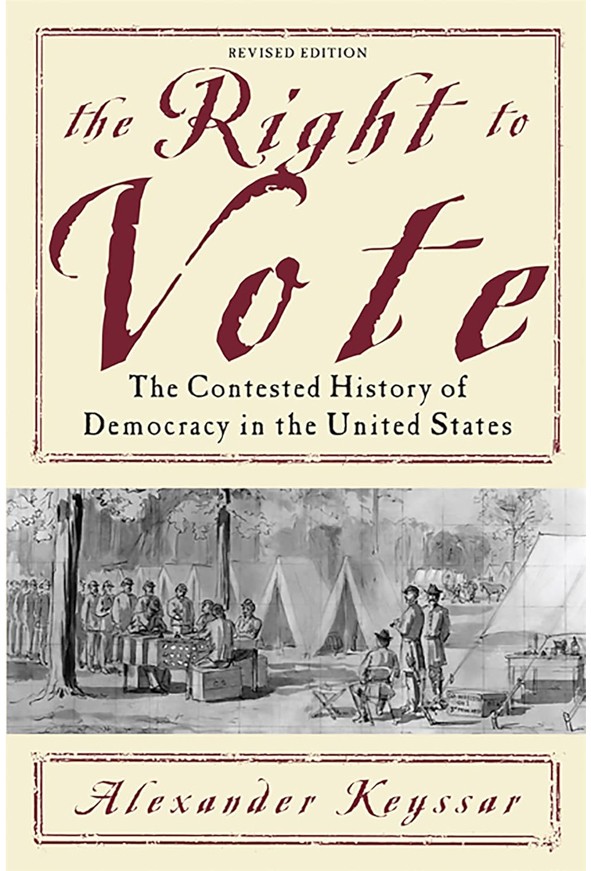
The Right to Vote
Alexander Keyssar Basic Books (2000)
Who should vote, and how should they vote? In The Right to Vote, historian Alexander Keyssar describes how diverging perspectives about the answers to these questions have shaped voting rights and elections in the United States since the colonial era.
Keyssar highlights both internal and external forces that pushed the nation to universal suffrage. For instance, immigration and population growth in the 1800s increased the proportion of the population who owned no property and could not vote — these individuals exerted pressure on states to expand suffrage rights. Around the same time, several states granted all militia members voting rights, in the hope that they would fight harder to protect the country if they had a voice in selecting its government.
His examination makes it easier to understand the motivations behind current electoral debates. Take how voter-registration lists are updated: whether these processes reduce fraud or disenfranchise segments of the population has been debated for centuries, and these perspectives remain the same today.
The Right to Vote explores one country’s struggle to define the meaning of democratic participation and governance. But readers from many nations will recognize similar challenges, and appreciate the importance of this history. — Bridgett A. King


